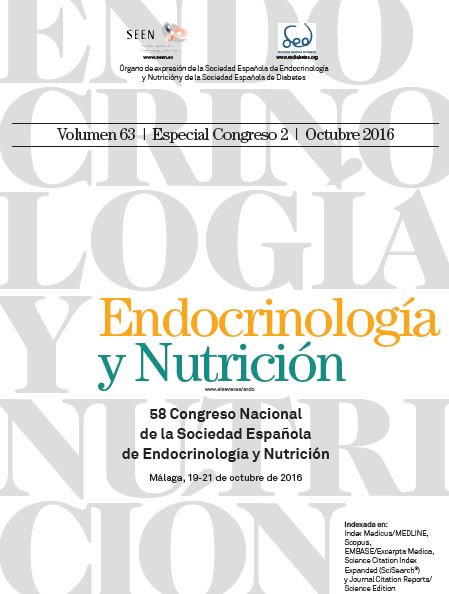329 - The relationship between daily dietary nutrient intakes and total kidney cyst volume on patients with autosomal dominant polycystic kidney disease (ADPKD)
aDepartment of Nutrition and Dietetics. Istanbul Gelisim University. Turquía. bDepartment of Nutrition and Dietetics. Istanbul Arel University. Turquía. cHaseki Training and Research Hospital. Clinic of Nephrology. Istanbul. Turquía. dBaskent University. Department of Nutrition and Dietetics. Ankara. Turquía.
ADPKD is one of the most common inherited and a multi-systemic disease which is responsible for about 10% of cases of end-stage renal disease (ESRD). Cardiovascular problems are a major cause of morbidity and mortality in patients with ADPKD. This study was conducted to determine the relationship between daily dietary nutrient intakes and kidney volume. The study was carried out on 22 male and 38 female patients, with a mean age of 48.6 ± 11.3 years, who were diagnosed with ADPKD. In this study the nutrient intakes of patients were estimated by the 24h dietary records obtained on 3 consecutive days. The mean eGFR was calculated to be 54.8 ± 36.46 ml/dk/1.73 m2 and the mean kidney volume was 1012 ± 776.8ml. Patients total dietary energy and protein intake was found to be 25.57 ± 9.32 kcal/kg/day, 0.87 ± 0.32 g/kg/day (respectively). Patients’ percentage of energy from carbohydrates, protein, total fat and saturated fat was determined as 49 ± 7%, 14 ± 2%, 36 ± 6% and 11.6 ± 3.6% (respectively). Patients’, especially women, mean dietary folat intake was much lower than the DRI (Daily Recommended Intake). Patients’ mean dietary calcium and potassium intakes were insufficient. Patients’ mean dietary sodium intake was higher than the DRI recommendation. It was found that when patients were divided in to two groups, by their median kidney volume (743 ml), there was no difference in their carbohydrates, protein and total fat intakes. Dietary calcium, magnesium, potassium, sodium and zinc intakes were lower; phosphorus and iron intakes were similar in patients with higher kidney volume than the patients with smaller kidney volume but these relationships weren’t statistically important. As a conclusion, patients’ total fat, saturated fat and sodium intakes were higher; dietary folat, calcium and potassium intakes were inadequate. Due to the lack of medical diet therapy recommendations on patients with ADPKD, patients should be followed by a specialist (renal) dietitian to protect malnutrition or hypertension and to prevent further renal injury in order to slow polycystic kidney progression to ESRD.





